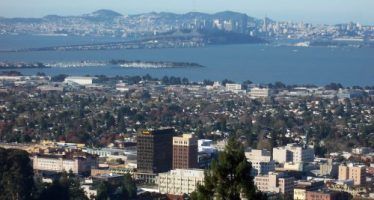L.A. Times Exhales Prop. 19
I thought the L.A. Times was supposed to be “progressive” and “liberal”? Actually, they’re an establishment, elitist, government-loving paper. As shown by their editorial opposing Prop. 19, which would legalize marijuana in California.
It’s the same position taken by the Chamber of Commerce, Arnold (shown toking in the picture), Meg, Jerry, Barbara, Carly, DiFi, etc. Establishment. Elitist. Government-loving.
In their editorial, the Times writes:
Marijuana is the most popular illegal drug in the United States. Seventy years of criminal prohibition, “Just Say No” sloganeering and a federal drug war that now incarcerates 225,000 people a year have not diminished the availability or use of — or apparently the craving for — cannabis. And helping meet the demand is California, the nation’s top grower. Marijuana production here results in an estimated $14 billion in sales, and its cultivation and distribution are now tightly woven into the state’s economy. It is grown in homes, in backyards and even in national parks, including Yosemite.
So then, why don’t we stop putting people in jail for using it or selling it? The Times continues:
Whether marijuana should be legal is a valid subject for discussion. Californians ought to welcome a debate about whether marijuana is any more dangerous than alcohol, whether legalization would or would not increase consumption, and whether crime would go down as a result of decriminalization. But Proposition 19 is so poorly thought out, badly crafted and replete with loopholes and contradictions that it offers an unstable platform on which to base such a weighty conversation.
No it isn’t. I’ve read hundreds of these propositions, and 19 is as well-written as most of them, maybe better. As Debra Saunders writes today:
The establishment spin goes something like this: Even if marijuana legalization makes sense, Prop. 19 is so poorly written that voters must reject it.
Bunk. The measure is tightly written to give state and local governments unimpeded authority in deciding whether to allow the sale of marijuana, and if so, how to tax and regulate it.
There won’t be a better bill. Marijuana prohibition enables and enriches criminal cartels and gangs. Californians have a chance to end the madness, and voters should grab it.
Right. Let’s get back to the Times’ paralogy:
But the proposition is in fact an invitation to chaos. It would permit each of California’s 478 cities and 58 counties to create local regulations regarding the cultivation, possession and distribution of marijuana. In other words, the law could change hundreds of times from county to county. In Los Angeles County alone it could mean 88 different sets of regulations.
So what’s wrong with that? California now has 38 million highly diverse people, and its central government obviously is dysfunctional. The governor and Legislature can’t even pass a budget that’s on time and not wildly out of balance. Let the locals decide. It’s called democracy.
Californians cannot legalize marijuana. Regardless of how the vote goes on Nov. 2, under federal law marijuana will remain a Schedule I drug, whose use for any reason is proscribed by Congress. Sure, California could go it alone, but that would set up an inevitable conflict with the federal government that might not end well for the state.
Bring it on! It’s time for the states to start standing up against federal tyranny by nullifying laws by the centralized regime in Washington, the way Northern states nullified federal fugitive slave laws before the Civil War. Typically, the Times is on the side of the federal tyrants instead of Californians.
One reason given by Proposition 19 supporters for legalizing marijuana is that California is in dire fiscal straits, and taxing the cannabis crop could ultimately enrich state and local coffers by $1.4 billion a year. But again, critics say that argument is misleading. The act essentially requires local governments that choose to regulate and tax marijuana to establish new bureaucracies and departments, and much of the new revenue could be eaten up by the cumbersome process of permitting and licensing sales, consumption, cultivation and transportation.
Who cares about the tax issue? Governments at all levels already grab too much of our money anyway. If local governments get less than expected, that’s all to the good. And if the licensing process is too complicated, then simplify it.
Far from helping the state’s economic outlook, Proposition 19 could cause substantial harm. For instance, it would put employers in a quandary by creating a protected class of on-the-job smokers, bestowing a legal right to use marijuana at work unless employers could actually prove that it would impair an employee’s job performance. Employers would no longer have the right to screen for marijuana use or discipline a worker for being high. But common sense dictates that a drug-free environment is crucial at too many workplaces to name — schools, hospitals, emergency response and public safety agencies, among others.
Wrong. As the Legislative Analyst’s report put it back in June, in language that’s in the explanation in the ballot pamphlet sent to voters:
Oct. 31, 2010
Related Articles
Far-reaching state housing law gets nowhere in Berkeley
As CalWatchdog reported July 2, the city of Cupertino’s decision to stop fighting a massive mall makeover project enabled by
Cal Supreme Court Tyranny
John Seiler: Recall, anyone? Not of Gov. Jerry Brown — yet. But of the five California Supreme Court “justices” who
Why no Asian Nobel economics laureates?
Fabled investor Jim Rogers brings up an important point: Why has there never been an Asian winner of the Nobel




